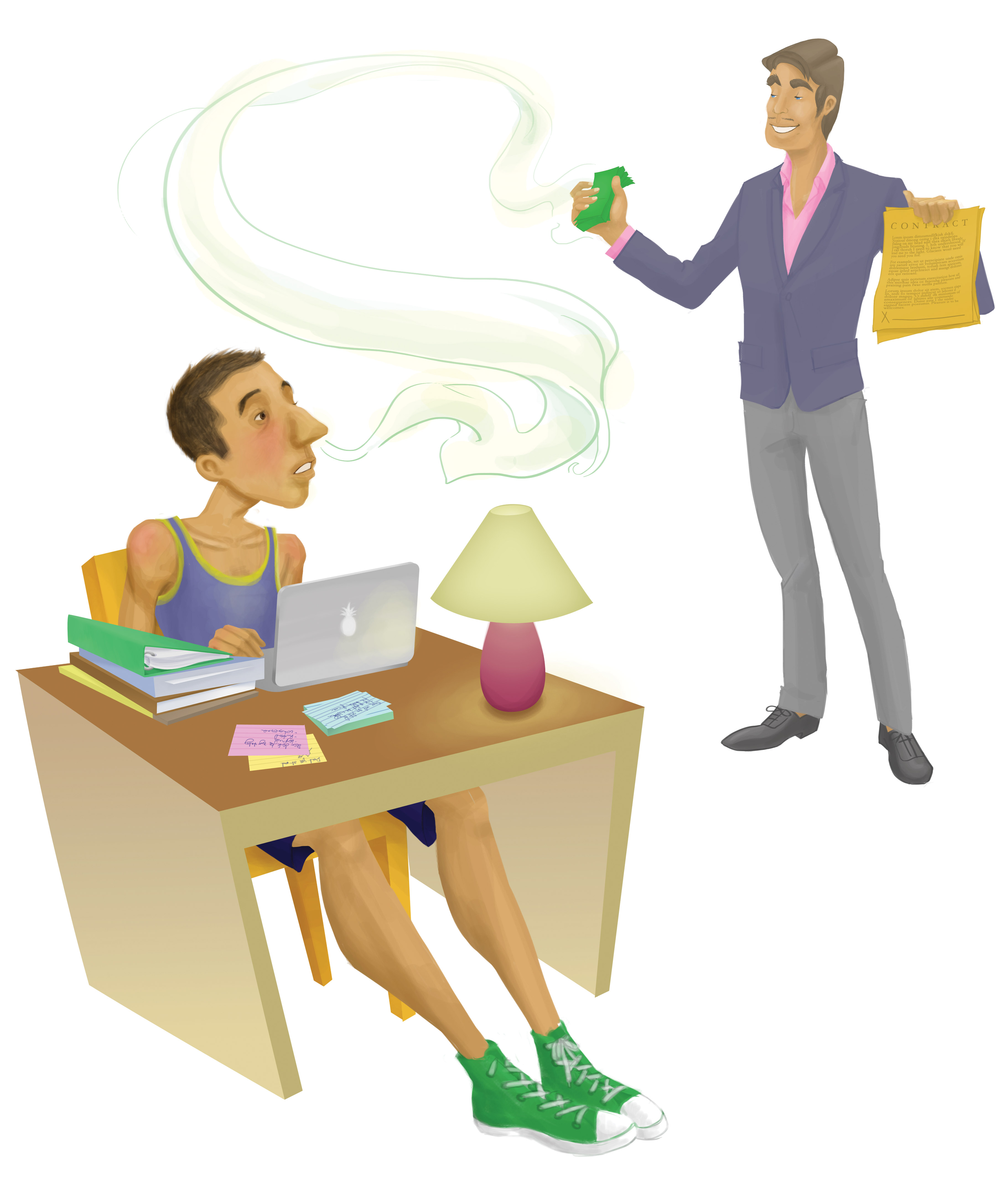The debate as to whether a college athlete should stay and earn a degree after four years or declare for the professional leagues before graduation has been heard time and time again.
It was seen this year at UCLA as redshirt junior outside linebacker Akeem Ayers and junior safety Rahim Moore headed to the NFL, while sophomore forward Tyler Honeycutt and junior guard Malcolm Lee bolted for the NBA. All four athletes left with NCAA eligibility remaining, not to mention a coveted UCLA degree awaiting.
With seven-figure paychecks and signing bonuses beckoning, the decision “to be, or not to be” a professional athlete and forgo a college education has often led to the neglect of the student aspect of the student-athlete.
UCLA has seen some of its greatest athletes, such as NBA All-Stars Kevin Love and Russell Westbrook and NFL Pro-Bowler Maurice Jones-Drew, turn professional prior to receiving their degrees. However, UCLA has also seen many of these athletes return to campus and fulfill their status as student-athletes by completing their degrees during their respective off-seasons.
In times of economic uncertainty and impending lockouts for the NFL and NBA, in addition to the risk of injury present in all sports, athletes are looking for something to fall back on. And that something is a diploma.
“Right now, part of it is the unknown with the NFL; without the contract, I think some of the folks are back trying to be focused on a “˜plan B’ because they’re not sure if there’s going to be a season,” said Mike Casillas, director of Student-Athlete Counseling.
One of those folks happens to be the NFL leader in tackles at his position: Tennessee Titan and former Bruin cornerback Alterraun Verner. However, this past quarter, he’s been known as a resident of Hedrick Summit and a mathematics/applied sciences student who is also in the College Honors Program.
“A lot of people went back because of the lockout,” Verner said. “With the lockout happening during winter quarter, it provided me an opportunity to finish my studies.”
Lockouts aren’t the only reason for unemployment, as job insecurity and possibility of injury is always a part of the competitive job description.
“Nothing is set in stone,” Verner said. “For those who aren’t first- or second-round draft picks, they can’t live on their initial contract. Our job security is always in question year-in and year-out because there are new players coming in trying to take your spot, unless you’re Peyton Manning or somebody like that.”
“Nothing’s promised. You may have a good career and work hard, but injuries are still in play, so you never know what’s going to happen,” Indiana Pacers point guard and Bruin alumnus Darren Collison said. “And just in case that happens, I have a backup plan.”
Many athletes are also realizing that after their playing days are over, they’ll need something else to fall back on.
“They even come back for career advancement,” Casillas said. “With the economy, some folks that are done playing at a professional level are just like everybody else, trying to make themselves more marketable.”
“It’s not so much the injuries, but whenever you’re trying to develop businesses and do endorsement deals, people want to see things like, “˜OK, he got his degree at UCLA,'” Collison said.
Apart from being the winningest university in the country in national team championships, UCLA’s academic prestige attracts recruits as well.
“I know how strong academically, but also athletically, this school is, and it was a big reason why I even came over in the first place, and that definitely carried over in me wanting to come back and finish,” Verner said.
While the fear of unfortunate circumstances leading to unemployment and the foresight to have an income source after retirement from professional sports are factors in athletes’ decisions to return to school, personal reasons also account for why professional athletes return for a degree.
According to Casillas, when College and Pro Hall of Fame quarterback Troy Aikman returned to campus, it was to please his family and to make good on a promise he made to his mother.
The UCLA Academic and Student Services Office has been more than willing to work with athletes in completing their degrees, even after they turn professional.
“We try to be fair and consistent across the board. … What the student brings to the table, we try to match up,” Casillas said. “We’re going to make degree plans with all of our student-athletes, whatever their wish is, and we’re going to map it out for them quarter-by-quarter, year-by-year, to help them reach that goal.”
And for Verner, that goal has been reached. He will walk in the commencement ceremony with the class of 2011 ““ not just as a professional athlete but as a graduating Bruin, like the rest of his classmates.
